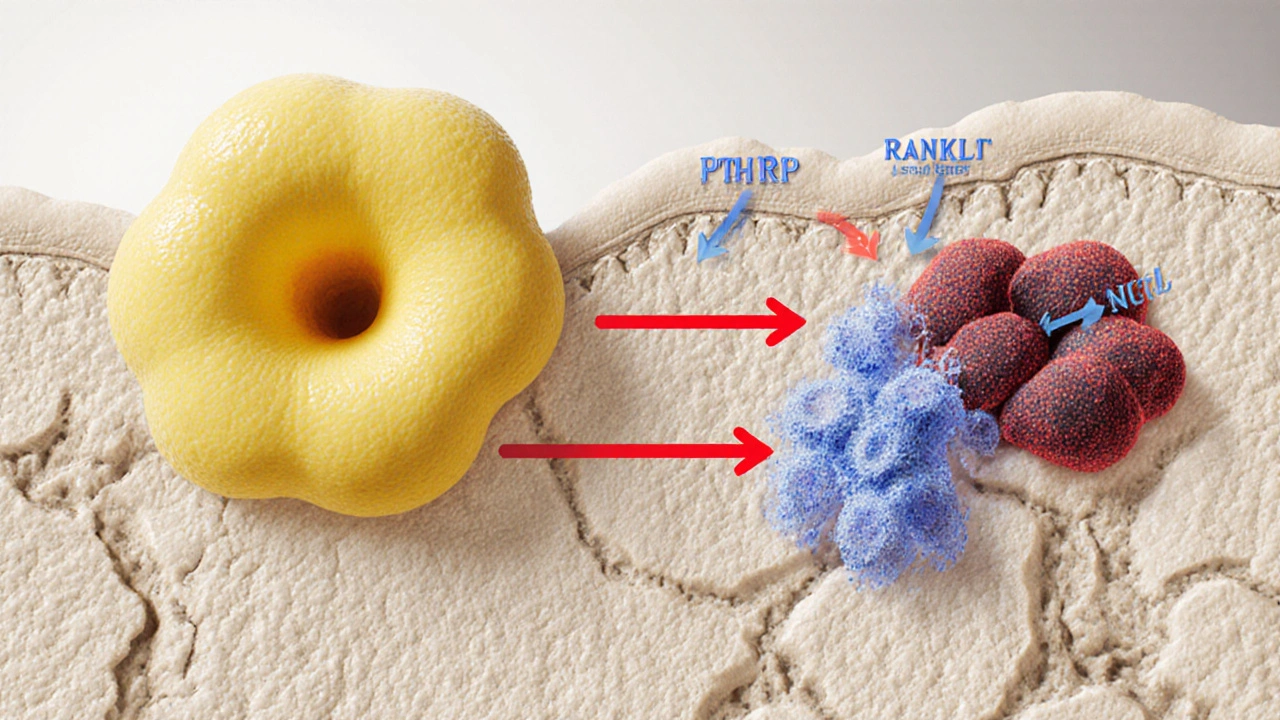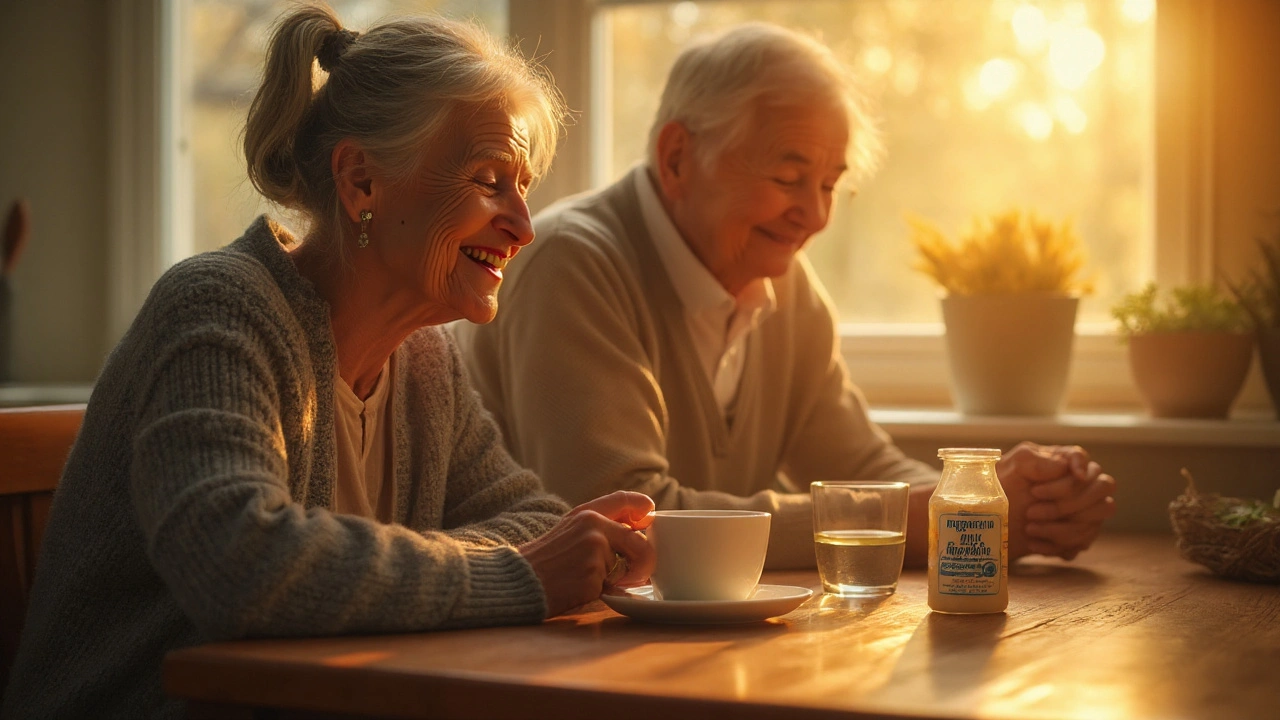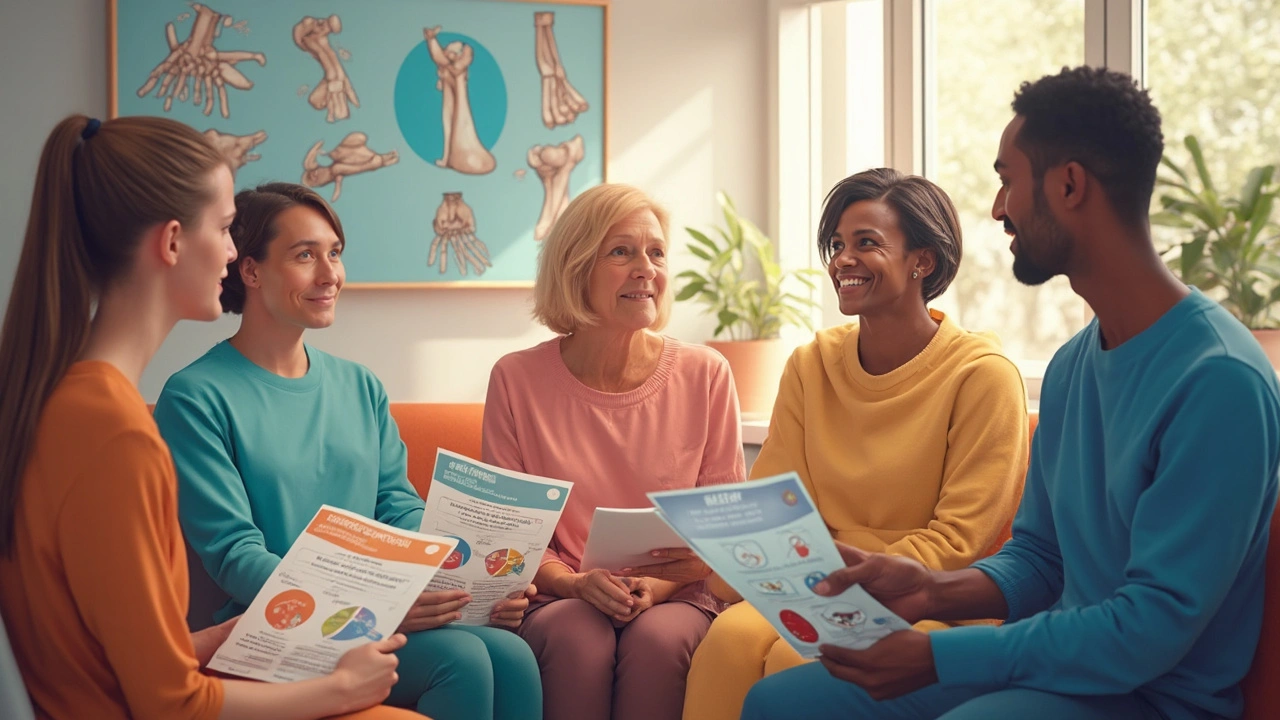Bone Health Basics: How to Keep Your Skeleton Strong
If you’ve ever felt a weird twinge in your wrist after lifting groceries, you know bones matter. Strong bones keep you upright, mobile, and pain‑free. The good news? You can boost bone strength with everyday choices – no miracle pills needed.
Eat Right for Bone Strength
The easiest way to feed your bones is by loading up on calcium‑rich foods. Think dairy like milk, cheese, and yogurt, but also non‑dairy options such as fortified plant milks, leafy greens (kale, bok choy), and canned fish with soft bones (sardines, salmon). A cup of cooked kale gives you about 100 mg of calcium; a single serving of yogurt can hit 300 mg. Aim for roughly 1,000 mg daily if you’re under 50, and bump it up to 1,200 mg after that.
Calcium needs vitamin D to get absorbed. Sunlight is the cheapest source – 10‑15 minutes on a clear day can do the trick for most people. When sun isn’t an option, grab fortified cereals, egg yolks, or a modest supplement (800–1,000 IU). Don’t overdo it; too much vitamin D can cause other issues.
Magnesium and vitamin K2 often get ignored but they play key roles in bone remodeling. Nuts, seeds, whole grains, and fermented foods like natto are simple ways to add them to your diet.
Move Your Body to Protect Bones
Weight‑bearing activities send tiny stress signals that tell bones to grow denser. Walking, jogging, dancing, or hiking for 30 minutes most days works wonders. If you enjoy the gym, try resistance training – squats, deadlifts, and push‑ups force muscles to pull on bone, prompting growth.
Balance exercises reduce fall risk, which is crucial as you age. Simple moves like standing on one foot while brushing teeth or practicing tai chi for 10 minutes can improve stability dramatically.
Avoid long periods of sitting. Set a timer to stand up and stretch every hour – even short walks around the house keep circulation moving and give bones a gentle nudge.
Smoking and excessive alcohol are bone‑breakers. Smoking reduces blood flow, while heavy drinking (more than three drinks a day) interferes with calcium absorption. Cutting back or quitting can slow bone loss fast.
If you’ve already been diagnosed with osteopenia or osteoporosis, talk to your doctor about prescription options like bisphosphonates. They’re not first‑line for everyone, but combined with the lifestyle steps above they can make a big difference.
Bottom line: strong bones are built on three pillars – calcium + vitamin D intake, regular weight‑bearing movement, and healthy habits that protect against loss. Start small: add a glass of fortified milk to breakfast, take a brisk 20‑minute walk after dinner, and swap the nightcap for water. Your future self will thank you when you’re still dancing at parties instead of nursing aches.
Keep these tips handy, revisit them often, and watch your skeleton get tougher day by day.
Learn how tumor growth harms bone health, the mechanisms behind bone metastasis, signs to watch for, and strategies to protect skeletal strength.
Explore how magnesium hydroxide helps seniors by easing heartburn, relieving constipation, and supporting bone health, plus safety tips and comparisons.
Disoproxil (commonly TDF) is a powerful HIV medication, but it comes with some real concerns about bone health. This article digs into how disoproxil affects bones, who’s at risk for complications like fractures or osteoporosis, and what you can do to protect yourself. You’ll get practical advice, surprising facts, and recent data, all explained in plain language. If you or someone you know is on TDF, this guide will help make sense of the risks and how to stay healthy. Expect an honest, detailed look at what’s known and what you can actually do about it.



